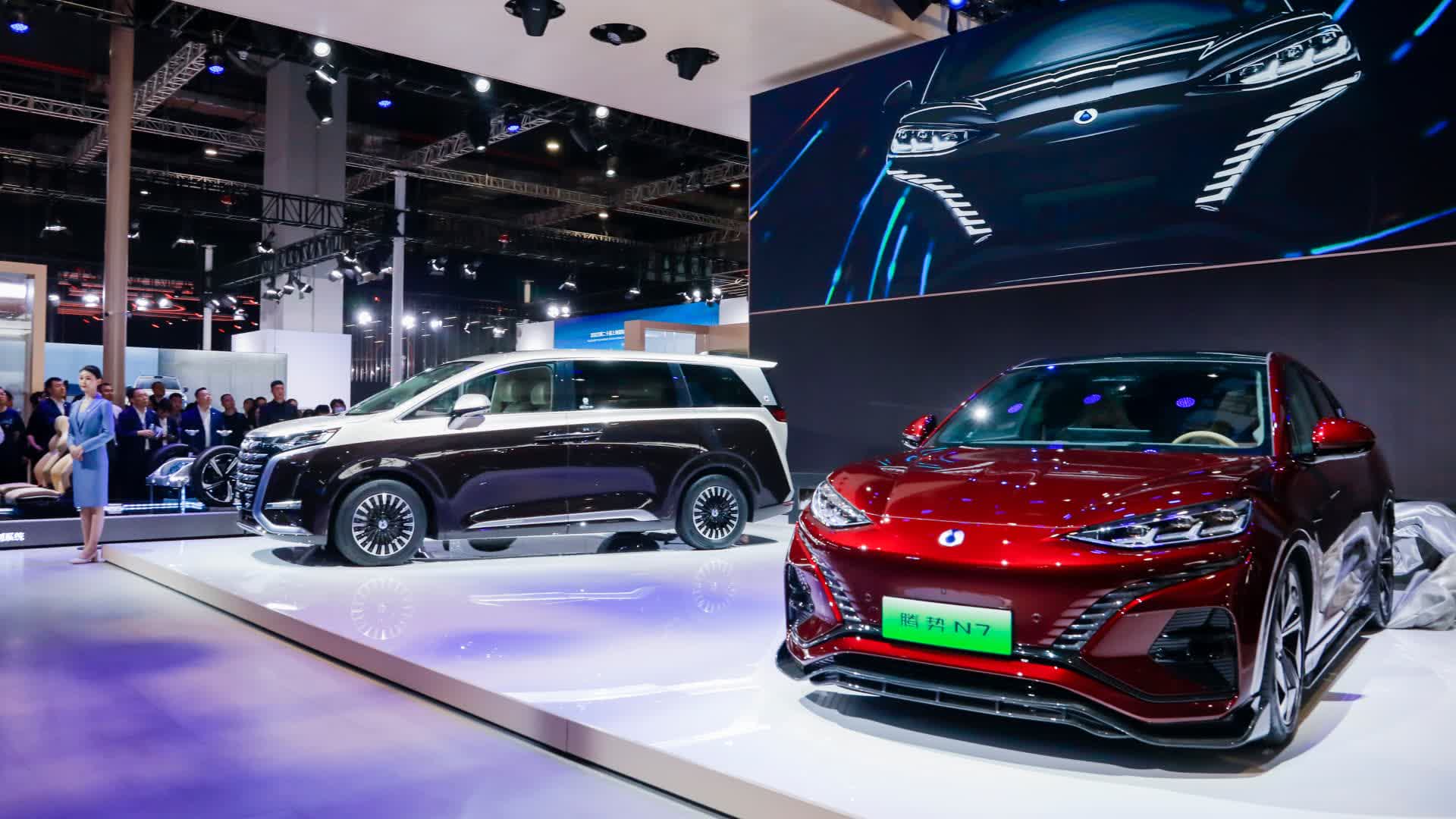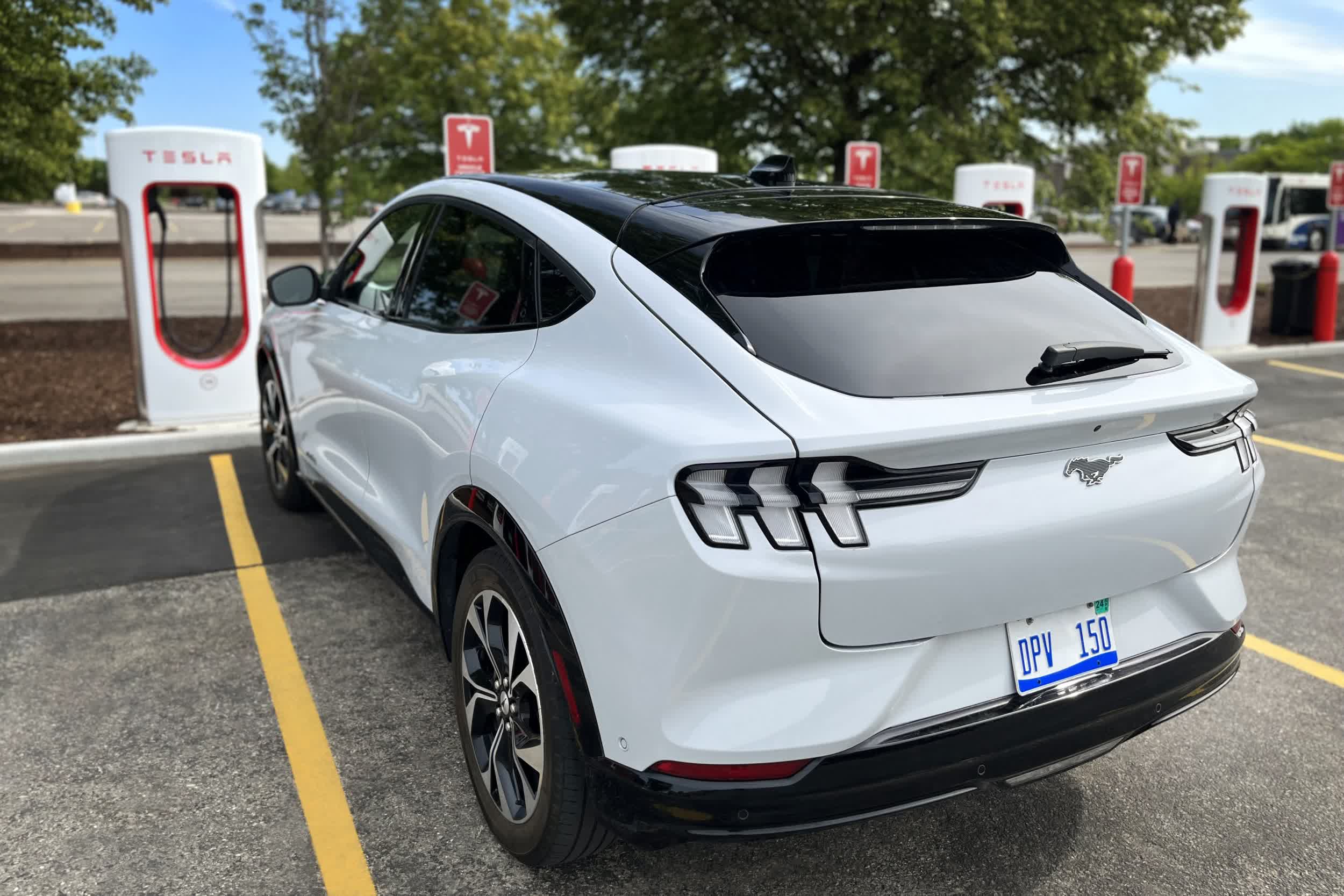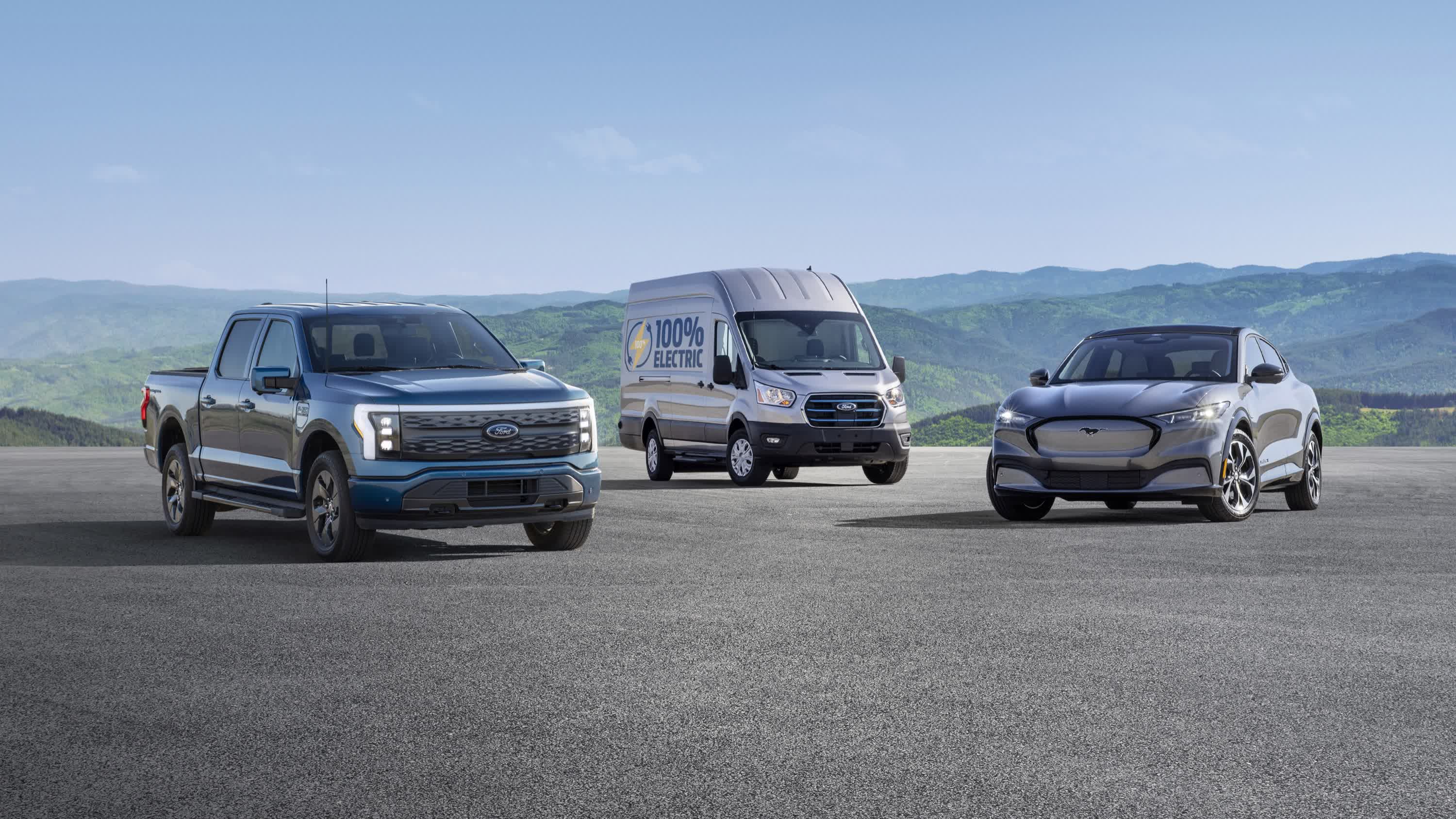Why it matters: Electric vehicles aren't having the best time in the US right now. Sales have slowed down as more people opt for hybrid or all-combustion vehicles. The high price of EVs remains an issue for many, but Ford is reportedly working on a cheap electric vehicle to rival Tesla's sub-$25,000 Model 2.
With the threat of cheap Chinese EV imports looming large, Ford is pivoting away from large EVs to low-cost models, writes Bloomberg. The move has seen it delay plans for an electric three-row SUV and focus on developing small EVs through a specialized team in Irvine, California. The skunkworks team is led by Alan Clark, who moved to Ford two years ago after leading the engineering of the Tesla Model Y.
The report adds that Clark's team consists of fewer than 100 people working on a new electric platform that will be the basis for several EVs, including a compact SUV, a small pickup and a ride-hailing-specific vehicle. The first of these models will arrive in late 2026 with a starting price of around $25,000.
Interestingly, Ford's new compact EV will be powered by a lithium iron phosphate battery, which is about 30% cheaper than traditional lithium-ion batteries.
"All of our EV teams are ruthlessly focused on cost and efficiency in our EV products because the ultimate competition is going to be the affordable Tesla and the Chinese OEMs," said Ford CEO Jim Farley.
That $25,000 figure is significant as it is said to be around the same starting price as Tesla's next mass-market electric vehicle, a compact crossover codenamed Redwood, which will begin production at the Texas Gigafactory in the second half of 2025. In January, Tesla boss Elon Musk warned workers that they would be sleeping on the factory floor so any issues stemming from the production ramp-up for this EV could be addressed quickly.

It was only a few weeks ago that President Biden ordered an investigation into whether Chinese connected vehicles, particularly EVs, pose a security risk to American citizens. It arrived amid concerns that cheap EVs from China could flood the US market, which would have a major impact on domestic car makers.
Yesterday, President Biden announced a new rule on tailpipe emissions that calls for a 56% reduction in fleetwide average carbon emissions by 2032, the strictest-ever limit on pollution from cars and light trucks. The move is expected to ensure a massive uptick in the sale of EVs over the next eight years. While EVs made up just 7.6% of new car sales last year, the Environmental Protection Agency (EPA) says the new standards will see electric vehicles make up 35% to 56% of sales by 2032.

